12. October 1944, withdrew the army to Athens. Isabella Palaska is the daughter of twice as a Nazi collaborator accused, and both times acquitted Ioannis Voulpiotis. She went on a search.
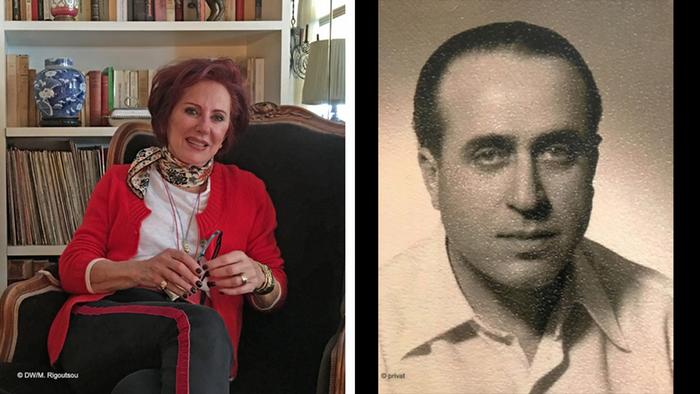
“My father was accused of was very painful for me. I was angry and had feelings of shame. I couldn’t say all that’s true,” says Isabella Palaska. After the Second world war, her father was accused of twice as a collaborator and twice acquitted. That was in 1947 and 1948.
But let’s see: your father Ioannis Voulpiotis was a gifted engineer who had studied at the Technical University of Munich. Karl Friedrich von Siemens valued his skills highly, and so the young Greek, had assumed important positions of leadership. And not only that: Voulpiotis was married to Herta, the daughter of Werner von Siemens, he got a child together. However, the marriage lasted because of the fragile health of his wife, not for a long time.
Career in the home
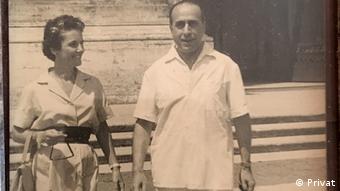
The parents of Isabella Palaska: Ionnis Voulpiotis with his second wife Elena
Before the Second world war Ioannis Voulpiotis returned to Greece. He married the 18-year-old, but well-heeled Elena Eugenidis from Thessaloniki. From the marriage of Isabella Palaska comes from. Voulpiotis was a representative of Siemens and Telefunken in Greece, and had even supplied the technology for the founding of the state radio – a welcome means of propaganda for the Regime of the Greek dictator Ioannis Metaxas and, later, for the Nazi Regime in Germany: Hitler had let Voulpiotis advise and was impressed with his in-depth knowledge about electrical engineering.
Influential, but controversial
Ioannis Voulpiotis belonged to the Greek upper class, was the General Director of the Greek radio and conversation partner at the time of important people like the Prime Minister and many generals. During the Second world war, he was linked with German and British diplomats. The establishment of the brutal Greek security battalions (Tagmata Asfalias) was Voulpiotis’ idea. You should help the Germans to fight the Communists. After the war, the father of Isabella Palaska was accused as a supporter and facilitator of the German Propaganda.
Letters of thanks from the Jews and the Communists
Ioannis Voulpiotis remains until today a controversial figure: on the one hand, the two charges of Nazi-collaboration – on the other hand, the daughter of Isabella in his archive, has discovered more than 1,500 letters of thanks from Jews, Communists and other Greeks. Therefore, she has decided to write two books (“angel or devil, my controversial father” and “The year of the storm”), in order to show the positive side of her father and the Shame that accompanied them for decades.
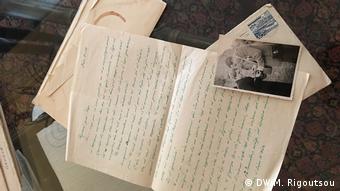
Letter of thanks to Voulpiotis
Isabella Palaska describes her father as “greedy”, sees him as a traitor. He really knew nothing of the crimes of the Nazis? “The Same I might as well ask the Germans,” says Palaska self-aware. “Didn’t know what happened in your country? This is a truth not many wanted to have come true.” Ioannis Voulpiotis was “no good father”, but in her opinion he was not a traitor. “He has admired the German culture. The is thrown at him.”
The least cases came before the court
A few hundred trials against collaborators after the war, in Greece, most of the place – from 1944 to 1949. The fact that Ioannis Voulpiotis has been absolved, was no exception. The Greek historian Dimitris Koussouris, who teaches at the University of Vienna, says in an interview with Deutsche Welle that 85 percent of all collaborative cases came before the court. So were about 15,000 charges in Athens just 2,200 cases are negotiated. 114 collaborators were tried from 1945 to 1949, to the death, but only 25 judgments in the whole of Greece is actually enforced. 121 defendants were sentenced to life imprisonment, 614 have got milder sentences and 1,356 were acquitted. Rich, or rich through the war become collaborators were able to escape by bribes a punishment.
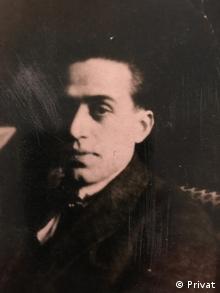
Ioannis Voulpiotis at a young age
The Greek historian Professor Stratos Dordanas, lecturer at the University of Macedonia in Thessaloniki, says that Greece is on the question of the punishment of the collaborators “is in comparison to other European States is no exception”. Dordanas: “If the Greek case is different in something, so in the small number of those who are ultimately sentenced, not forgetting that the end of the occupation, a bloody civil followed the war.” Many collaborators have joined after the war, the allies, and supported later during the Greek civil war (1946 – 1949) the fight against the Communists.
The past just forget?
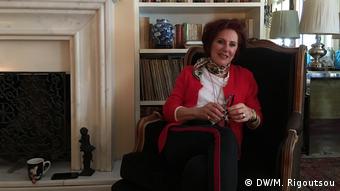
Isabella Palaska
The theme of the collaboration is a delicate in Greece until today. Many, including prominent politicians and businessmen, would forget the loved one, the past of their families. “The collaborators are not integrated in the civil war, only in the company quickly, and Some of them have assumed leadership positions and have even become, in less than 15 years, members of the Athens Academy,” says Koussouris. Again requests the German wave brought on to descendants, to talk about the heavy heritage, were rejected. The writer Isabella Palaska is an exception. In her two books, she has broken her Silence. But, nevertheless, she says the wound was “deep”.